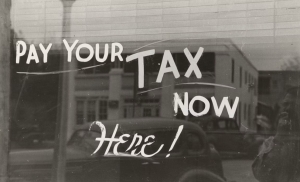Insolvency by the Numbers: NZ Insolvency Statistics April 2023
Economic recap
April saw the latest inflation figures released for the year to March 2023 showing a drop from the highs seen in the last two periods. The bulk of this drop in inflation however was from international factors while domestic figures remained elevated. Because of this and a number of other reasons the Reserve Bank has continued on their track whacking on a further 50 basis point rise to the OCR. We expect to see a final 25 basis points at the next meeting.
Comparatively Australia has seen their OCR drop, it is expected we will not see this for some time in NZ. The percentage of mortgage lending that remains at fixed rates is considerably higher in NZ, Australia on the other hand has a lot of its mortgage lending at variable rates, because of this a drop or raise in the OCR has a more immediate effect on the consumers purchasing power.
Of note over the last few months, we have seen a steady uptick in coverage of insolvency appointments by various media outlets, with particular focus on tiny home builders and the construction sector. From a numbers view point the constructions sector continues to dominate the total appointments ahead of other sectors as was the case throughout 2022. Commentators have been picking up on this fact with the common narrative becoming that we see more failures in this space before any sign of a recovery begins driven by squeezed margins and falling house prices. House sales continue to be at low volumes with prices maintaining a drop on the 3 month rolling average
Company Insolvencies – Liquidations, Receiverships, and Voluntary Administrations
Company insolvency appointments figures have finally come in for March 2023 with a number being late advertised after the end of the financial year, of note we passed the 2019 highs in both March and April (once late advertisers came through) of 2023 and were easily above 2020, 2021 and 2022 levels.
We did see the expected April drop as the result of appointments rushed into the end of the financial year March figures combined with a number of public holidays in the month of April.
As at the time of writing total corporate insolvency figures for the year to date were above the last 3 years but with the slower Jan and Feb 2023 we remain behind the 2019 total levels, thought not by a wide margin.
Solvent liquidations have returned to their standard levels as seen in Jan and Feb, as mentioned last month solvent liquidations typically see a spike in March as professional advisors and shareholders push the appointments through before the end of the financial year. While other liquidation appointments remain at consistent levels, we did see a lift in Voluntary Administrations for the month and Receiverships while higher than usual did fall from the levels seen in March 2023.
Winding Up Applications
Winding Up Applications for April increased on the prior years April figures and continued the upwards trend that has occurred since January 2023. Of note is the lift in IRD applications, typically for Aprils of past years commercial applications have taken the lead, not so from the latest figures. Whether this trend will continue for the remainder of the year is still to be seen given we are in an election year. It may be the case that the IRD is pushing through their appointments in the early part of the year before taking the pressure off as the election looms or they are finally dealing with the numerous derelict debtors they have on their books. Moving forward we are expecting continued growth into the peak months of June / July.
Personal Insolvencies – Bankruptcy, No Asset Procedure and Debt Repayment Orders.
Personal insolvency appointments remain at the lowered levels seen recently. It is likely that it will take some time for the corporate lift in appointments to flow through to personal insolvencies. This lift will likely come from increased interest rates, cost of living increases and guarantees on debts from failed companies.
Election Year Insolvencies
The above graph details the total corporate and personal appointments across all appointment types in this year and the last two election years.
While the corporate appointments are at elevated levels compared to 2017 & 2020 the very low personal insolvency appointment levels for the year to date mean that the total appointments remain below both 2017 and 2020. The corporate appointments will need to remain considerably above the past two election levels to make up for the personal insolvency figures, time will tell if that eventuates.
The difference between 2023 and the last two election years is noticeable in the state of the economy from low inflation and growing economies in the past to the present high inflation and shrinking economy with a cost-of-living crisis. It is still early days for the economic crisis to be completly reflected in insolvency figures which is typically a lagging indicator of the state of the economy.
If you want to have a chat about any points raised or an issue you may have you can call on 0800 30 30 34 or email This email address is being protected from spambots. You need JavaScript enabled to view it..
RICHMOND PONSONBY LIMITED (IN LIQUIDATION)
MANAGER |
Keaton Pronk |
LIQUIDATOR 1 |
Keaton Pronk |
LIQUIDATOR 2 |
Iain McLennan |
DATE APPOINTED |
Friday, 21 April 2023 |
DATE CEASED |
- |
DIONYSUS INVESTMENTS LIMITED (IN LIQUIDATION)
MANAGER |
Keaton Pronk |
LIQUIDATOR 1 |
Keaton Pronk |
LIQUIDATOR 2 |
Iain McLennan |
DATE APPOINTED |
Friday, 31 March 2023 |
DATE CEASED |
- |
COUNTRY GARDEN GROUP LIMITED (IN LIQUIDATION)
MANAGER |
Keaton Pronk |
LIQUIDATOR 1 |
Keaton Pronk |
LIQUIDATOR 2 |
Iain McLennan |
DATE APPOINTED |
Friday, 21 April 2023 |
DATE CEASED |
- |
When can a Liquidator clawback funds?
In New Zealand, the liquidator of an insolvent company may have the power to claw back funds received by creditors or other parties in certain circumstances. This is known as a voidable transaction, and it can occur if:
-
The transaction occurred within the two-year period before the company entered into liquidation, and
-
The transaction involved the transfer of property or payment of money, and
-
The transaction gave the creditor or party an unfair advantage over other creditors of the company.
If a transaction is deemed voidable, the liquidator may be able to claw back the funds received by the creditor or party. This is intended to ensure that all creditors are treated equally and that assets are distributed fairly.
Some specific examples of transactions that may be deemed voidable include:
-
Preference payments: Payments made to a creditor shortly before the company entered into liquidation, which gave the creditor an unfair advantage over other creditors.
-
Uncommercial transactions: Transactions where the company received less than market value for its assets, or where the company paid more than market value for goods or services.
-
Transactions with related parties: Transactions with directors, shareholders, or other related parties that gave them an unfair advantage over other creditors.
It's important to note that not all transactions will be deemed voidable, and the liquidator must follow a strict process to determine whether a transaction should be clawed back. If you have received funds from an insolvent company and are concerned about the risk of clawback, it's advisable to seek professional advice from an insolvency practitioner or lawyer.
A real-life example of a voidable transaction in New Zealand occurred in the case of Mainzeal Property and Construction Limited. Mainzeal was a large construction company that went into liquidation in 2013, owing over $100 million to creditors.
In the liquidation process, the liquidators identified several transactions that they believed were voidable, including:
-
Preference payments: Mainzeal had made payments of over $42 million to related parties, including its parent company and other companies associated with its directors, in the two years leading up to its liquidation. The liquidators argued that these payments were preferential and gave those related parties an unfair advantage over other creditors.
-
Uncommercial transactions: Mainzeal had transferred ownership of several properties to related parties for nominal amounts shortly before its liquidation. The liquidators argued that these transactions were uncommercial and gave the related parties an unfair advantage.
-
Transactions with related parties: Mainzeal had entered into several contracts with related parties for construction work and services. The liquidators argued that these transactions were uncommercial and gave the related parties an unfair advantage.
The liquidators pursued legal action to claw back the funds received by the related parties involved in these transactions. The High Court ordered Mainzeal's former directors to pay $36M in penalties. This order was overturned by the Court of Appeal and sent to the Supreme Court to reach a decision on total liability. The court decision is expected some time in 2023.
This example highlights the importance of understanding the risk of voidable transactions when dealing with an insolvent company, particularly when related parties are involved. It also underscores the need for careful consideration and professional advice when entering into transactions with an insolvent company or its related parties.
The risk of not paying your Taxes
The risk of not paying your company taxes to the Inland Revenue Department (IRD) in New Zealand can be significant and may include the following:
-
Penalties and interest: If you do not pay your taxes on time, you may be subject to penalties and interest charges. These charges can quickly add up and significantly increase the amount owed.
-
Legal action: The IRD has the power to take legal action to recover unpaid taxes. This can include issuing a statutory demand, taking court action, or placing a lien on your assets.
-
Business closure: If a business fails to pay its taxes, the IRD may take steps to wind up the business. This can result in the forced sale of assets and the closure of the business.
-
Personal liability: In some cases, company directors and officers may be held personally liable for unpaid company taxes (in particular unpaid PAYE which is Trust money). This can result in personal bankruptcy, legal action, and damage to personal credit ratings.
-
Reputational damage: Failing to pay taxes can damage a business's reputation and make it harder to secure financing, attract customers, or establish partnerships.
In short, not paying company taxes can have serious consequences for both the business and its owners. It's always advisable to ensure that taxes are paid on time and in full to avoid these risks.
If you are in arrears with company taxes to the Inland Revenue Department, there are several options available to you. These include:
-
Payment arrangement: You can negotiate a payment arrangement with the IRD to pay your tax debt over time. This can help you manage your cash flow while also meeting your tax obligations.
-
Late payment penalty remission: The IRD may consider remitting late payment penalties in certain circumstances. This may be available if you have a good compliance history and can demonstrate that the late payment was due to circumstances beyond your control.
-
Debt compromise: In some cases, you may be able to negotiate a debt compromise with the IRD. This involves settling your tax debt for less than the full amount owed. However, debt compromise is not available in all circumstances and is subject to strict criteria.
-
Voluntary disclosure: If you have made a mistake on your tax return or have failed to disclose information to the IRD, you can make a voluntary disclosure. This involves informing the IRD of the error or omission and paying any additional tax owed. Voluntary disclosure may help reduce penalties and interest charges.
-
Insolvency procedures: If you are unable to pay your tax debt and have exhausted other options, you may need to consider insolvency procedures such as liquidation, voluntary administration, or receivership. These options involve winding up the business or placing it under the control of an external party to manage the debt.
It's important to note that the options available to you may depend on your specific circumstances and the amount of tax debt owed. It's always advisable to seek professional advice from an accountant, tax advisor, or licensed insolvency practitioner before taking any action. Send us your enquiry from here.



